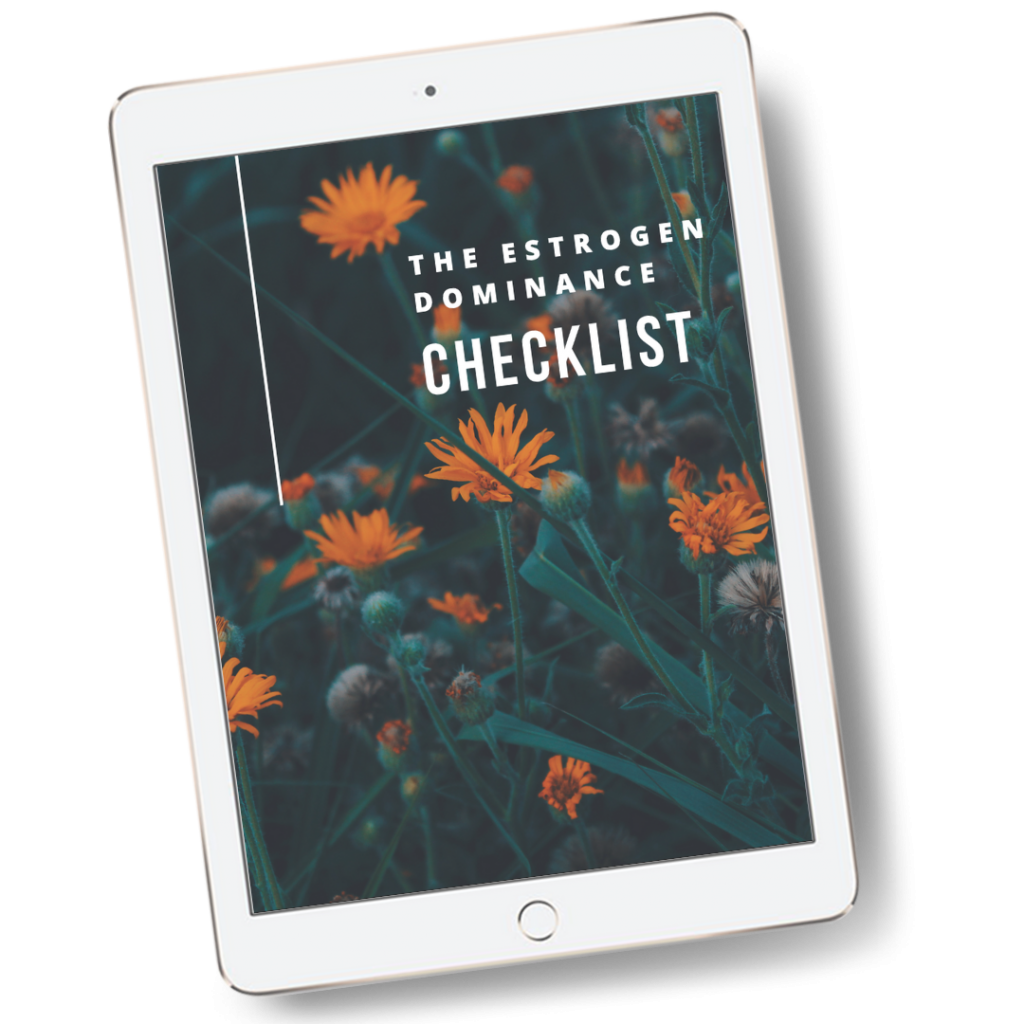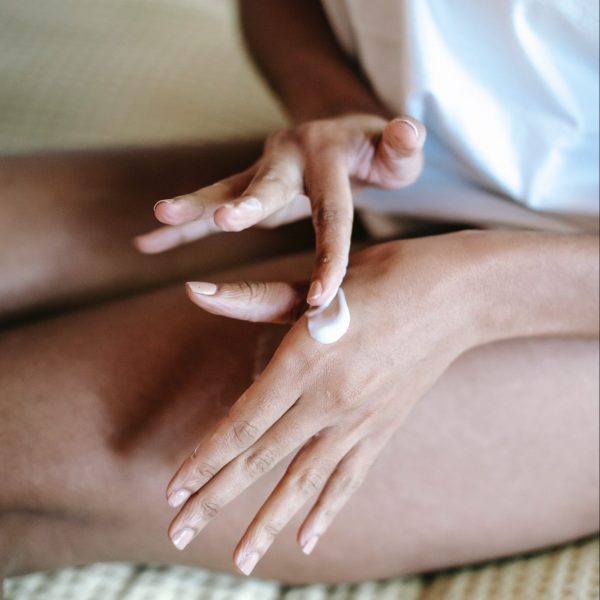Every woman who is considering or is already using natural progesterone cream should know these 10 important tidbits of information about this bio-identical hormone cream. We find many women use the cream incorrectly, or are worried about how they are using it. The more you know about natural progesterone cream, the better able you will be able to support your progesterone levels correctly.
1. Apply natural progesterone cream correctly. If you are not applying it correctly it may not be effective. The best areas for application are places in which capillaries are dense and close to the surface of the skin, such as:
- Face
- Neck
- Upper Chest
- Breasts
- Inner arms
- Palms of hands and feet
Avoid putting NPC on the fattiest areas of the body, as this may inhibit proper absorption. Fat can store the progesterone, rather than allow it to move into the bloodstream, circulate, and be utilized by the body. In addition, rotate where you apply the cream each time you use it to avoid saturation.
John R. Lee, MD, pioneer in women’s health and tailored hormonal balance programs, suggests transdermal application of progesterone cream is the best. This way is known to mimic the body’s natural release of progesterone, and be more effective at influencing progesterone levels than oral progesterone.
Board-certified OB/GYN physician, Dr. Christiane Northrup confirms that “The most physiologic way to take hormones is through the skin—either with a cream or a vaginal gel. That way the hormone goes right into the blood stream without having to be metabolized by the liver.”
2. Estrogen dominance may become worse when first beginning natural progesterone cream. When first introducing progesterone back into the body after an extended period of progesterone deficiency, the estrogen receptor sites ‘wake up’ (are stimulated), enhancing the action of estrogen for a short period of time. This is a sign that the body is responding well to the progesterone, even though at the beginning it can exacerbate estrogen dominance symptoms such as breast tenderness and swelling, spotting, fluid retention, dizziness, hot flashes, fatigue, headaches and nausea. This can be very worrisome, but should level out and go away over the next couple of cycles, as progesterone levels increase.

Get The Estrogen Dominance Checklist
- Tips and recommendation to supporting your body’s ability to get rid of excess hormones
- How to avoid chemicals that mimic hormones and where to find them
- Expert advice to support hormonal health
3. Stress affects progesterone levels. How? Stress increases cortisol levels. Cortisol competes for progesterone receptors; the higher the stress, the more cortisol the body produces. This means that those receptor sites may be occupied by cortisol rather than progesterone, which may require a temporary increase in progesterone supplementation. If you are not managing your stress levels, the natural progesterone cream you are currently using may not be effective because of elevated cortisol levels. Make stress reduction part of your plan to balance hormone levels.
4. Severe progesterone deficiency requires more time to increase progesterone levels with progesterone cream supplementation. It takes anywhere from 4-12 months to bring progesterone levels back up in women with very low progesterone levels. Following a loading dose protocol may help to bring the levels up quicker, but consistency of use over an extended period of time is best. For women who are trying to conceive, a realistic plan is going to help achieve pregnancy and prevent miscarriage due to progesterone deficiency. Give yourself many months of progesterone cream supplementation before even trying for a baby, to help prevent the likelihood of miscarriage.
5. Is it okay to use natural progesterone cream if you don’t know if you have low progesterone levels? It would be best to know if you have low progesterone levels or not. You would not want to work to increase progesterone levels if you don’t need to. Over time, using progesterone cream when it isn’t needed may create a situation in which too much progesterone is in the body. That being said, there are many clear signs of progesterone deficiency and testing is relatively easy. There are at-home saliva hormone tests and your doctor can test your levels as well.
6. A one-time overdose of progesterone cream is virtually impossible. That being said, it does not mean you should use more than the suggested dosage. It does mean that the female body can withstand high levels of progesterone in the body relatively well because, during the last trimester of pregnancy, the placenta is producing 300-400mg of progesterone a day. If you accidentally use too much or apply the cream more than 2 times in a day, you should be fine. Even if you used a whole bottle in a day, it may just make you feel very sleepy. Be sure you always stay within the recommended dosage guidelines recommended by your healthcare practitioner or on the label of the product you are using.
7. Split dosage up between morning and nighttime application. Apply the cream once in the morning and once in the evening before bed. Using it before bedtime may help some people to sleep better. Splitting the dosage up ensures 8-12 hours of sustained delivery. If you apply it all at one time, only once a day, it will still only last 8-12 hours, leaving the other 12 hours where you are not receiving any. The split dosage ensures optimum progesterone levels are maintained.
8. Each cycle, stop using natural progesterone cream only when you have confirmed you are NOT pregnant. This means if you are trying to get pregnant while using NPC, be sure to continue it until you have definitely confirmed you are not pregnant.
If you get a positive pregnancy test result, continue on with the progesterone cream. Be sure not to skip a day of use of NPC in pregnancy. Doing so may result in a sudden drop of progesterone levels, which may cause a miscarriage. Have two bottles on hand at all times to ensure you don’t run out.
The American Society for Reproductive Medicine published a educational bulletin in the journal Fertility and Sterility about “A classic series of studies conducted more than three decades ago demonstrated that P [progesterone] secretion by the CL [corpus luteum] is absolutely required for the success of early human pregnancy… These and other related studies demonstrated clearly that the success of early pregnancy depends on P that derives primarily from the CL before 7 weeks’ gestation…”
This confirms ages old knowledge of the importance of healthy progesterone elves in early pregnancy. If a woman’s corpus luteum isn’t producing progesterone at levels required to sustain pregnancy, natural progesterone cream may offer support. Talk to your doctor about using natural progesterone cream in pregnancy.
9. Discontinue use of progesterone cream by weaning off of it over time. When you decide it is time to stop supplementing with natural progesterone cream, simply reduce the amount you use each time you apply it. Do this on the last cycle you plan on using it. If you are pregnant, do not do this until at least the 16th week of gestation, when the placenta takes over progesterone production.
10. There are certain health conditions in which natural progesterone cream supplementation should be avoided. If you have a history of gestational pemphigoid (dermatosis of pregnancy), jaundice of pregnancy, severe active liver disease, hepatitis, rotor syndrome, Dubin-Johnson syndrome, or unexplained/abnormal vaginal bleeding, you should not use natural progesterone cream.
Want to know more? Be sure to read over our complete Progesterone Fertility Guide and our Progesterone & Fertility Q&A!
- Rollins, Catherine P.(2007). 10 Things Every Woman Should Know About Natural Progesterone. A Making Plans Production. Retrieved from: http://www.Natural-Progesterone-Advisory-Network.com [as of May 2018 this website is no longer available for public access]
- Venes, D. (2017). Tabers cyclopedic medical dictionary. Philadelphia: F.A. Davis Company.
- Lipman, F. (Marsch 16, 2010). The ABCs of HRT. Retrieved from https://www.bewell.com/blog/the-abcs-of-hrt/
- Lee, J.R. and Hopkins, V. (2006) Dr. John Lee’s Hormone Balance Made Simple; The Essential How-to Guide to Symptoms, Dosage, Timing and More. Ch. 9, pp 104-107. New York: Grand Central Life & Style. Hachette Book Group
- The Practice Committee of the American Society for Reproductive Medicine in collaboration with the Society for Reproductive Endocrinology and Infertility (November 2008). Progesterone supplementation during the luteal phase and in early pregnancy in the treatment of infertility: an educational bulletin. Volume 90, Issue 5, Supplement, pp S150–S153. DOI: https://doi.org/10.1016/j.fertnstert.2008.08.064. Fertility and Sterility. Retrieved from https://www.fertstert.org/article/S0015-0282(08)03459-6/fulltext





